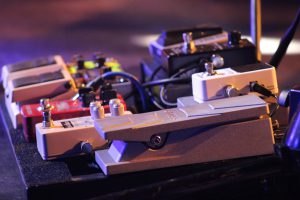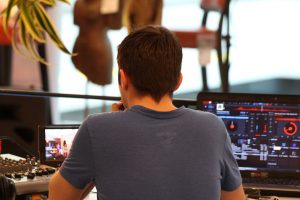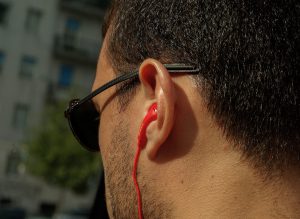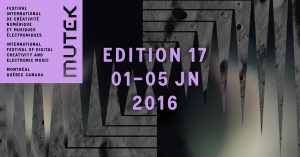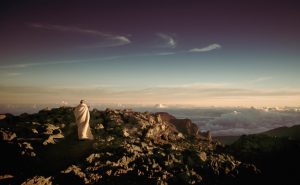Deleting all yours tracks and selling your gear.
Since the very beginning, I can remember many times I’ve questioned my abilities as a music producer. Feeling stuck on a project or coping with negative feedback from a track I was proud of left me wondering if I was starring down the path of a musical dead end. Sometimes it doesn’t take much to consider unplugging, and putting it all away for good. Several colleagues of mine have similar stories, and more than once I’ve seen someone debate deleting all their tracks and selling all their gear.
High highs and low lows. There is a wealth of research which supports the fact that making music can produce a massive dose of satisfaction, a high similar to the effect of drugs or the rush of an intense workout. The thrill after completing a track is huge, yet on the flip side when things aren’t working out the low can often be depressing. At times it can feel like you’re living in a constant state of low-grade misery. Our perspective often governs our moods, and with just a twist our outlook can turn from sour to super very quickly.
I’ve spent a lot of time reading comments within Facebook groups from people flirting with the idea of selling their gear and calling it quits. On the digital side, I hear people talk about deleting entire hard drives filled with a rough version of tracks, and I think about the hard work and time they’ve invested in projects that will never be completed. They feel the work is simply not worth the effort. So often the feeling of excitement and energy from listening back to our next best track can be replaced by frustration and self-doubt when seeing it stored away in the unfinished bin. Another great idea that stays just that, and idea – incomplete, unheard. Back to the drawing board. Again.
A personal rule of mine is never to delete any project or sample. I just won’t do it. 0% chance.
I believe the main enemies that alter our judgment are overexposure and adverse reaction. If I am working on a project that just isn’t happening, I remind myself to simply store it away and come back to it after a time has passed. Once re-opened and listened to with a new perspective, you’ll likely find something that inspires you, or at the very least – something you can work off of right away. As artists, we are always changing. The artist you’ll be a year from now might like or dislike what you’re producing right now. By keeping your unfinished projects somewhere safe, you are investing in your time and talent for tomorrow rather than throw away what you’re frustrated with today.
Tip: This might feel silly but if you don’t feel good about music, try simply saying:”For the moment, I don’t feel like making music.” Insist on “for the moment“, because it takes away the idea that your mindset is permanent.
In past posts I’ve talked at length about the benefit of planting seeds, creating a master project where all your ideas can be grabbed from and used as a springboard to something great with minimal effort. The benefits of having a library of sounds and tools custom-made, ready at a moments notice, is huge because momentum is critical to completing your tracks.
One thing that’s common is the search for old gear to achieve a particular sound. At some point, it’s natural to feel like you’ve outgrown your equipment and you’re sure that buying new (old) gear will solve the problem. We are constantly being tempted with new products and tools that promise to solve our problems and make everything that much easier. Even after buying new gear we sometimes don’t take time to truly audition them. How often do we ask ourselves what it is we truly need to fix? Can gear solve this? The hype and marketing work for sure, yet without fail the next time we turn around there is yet another must-have tool we’re after, because this one…. man this one, is going to make the difference.
Tip: Some gear can be rented. If you can test drive what you want, that can be really useful.
Take a minute to reflect what your goals are before making another investment.
 To truly move on as a producer the best personal investment I can think of is to simply finish something, anything. I believe deleting your tracks reinforces your inability to finish what you started, and doesn’t bring anything good. You certainly aren’t farther ahead as a producer, and you’ll never have anything to show without completing your projects.
To truly move on as a producer the best personal investment I can think of is to simply finish something, anything. I believe deleting your tracks reinforces your inability to finish what you started, and doesn’t bring anything good. You certainly aren’t farther ahead as a producer, and you’ll never have anything to show without completing your projects.
Take a moment to look at your progress or lack thereof. Where do you get stuck? Where does it come to and end? Is your sound design weak, do you break apart while arranging it? Find your weakness and draw a circle around it with a big, red, pen. That is your problem area. This is the tough part for you. This is where you give up and call it quits. Nothing you can buy is going to fix this for you. The good part is that now you know where you break down you can learn ways to improve on it.
Youtube. Thank the Lord. Whatever you are looking for I promise there will be a video to help you overcome your sticking point. Just don’t get stuck endlessly watching videos that hours later morph into a totally different topic (it’s easy to do). Also, to wrap things up, here’s a production tip I love doing: At the end of a session, bounce whatever you have, then store this in the folder of the production. Always do “collect all and save” It can be a 30-second loop ,the arrangements you have ongoing, or even export all your session stems. Doing this is extremely useful when going through older projects but also, you can open a blank project and then import several bounces and play with them straight away. This tip has been so useful for my past albums!
SEE ALSO : Finishing Your Projects

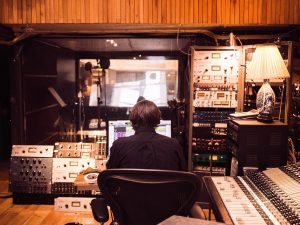 So with all that being said, within the life cycle of a track, you’ll go through:
So with all that being said, within the life cycle of a track, you’ll go through: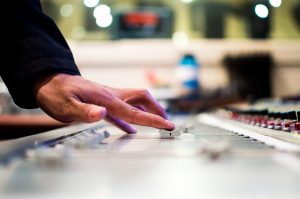 So overall, a full day’s work at the studio involves only about 2-3 hours of actual music production. A lot of my time will be spent on tweaking, searching, checking references, checking emails, and taking many breaks that might appear as procrastination.
So overall, a full day’s work at the studio involves only about 2-3 hours of actual music production. A lot of my time will be spent on tweaking, searching, checking references, checking emails, and taking many breaks that might appear as procrastination.